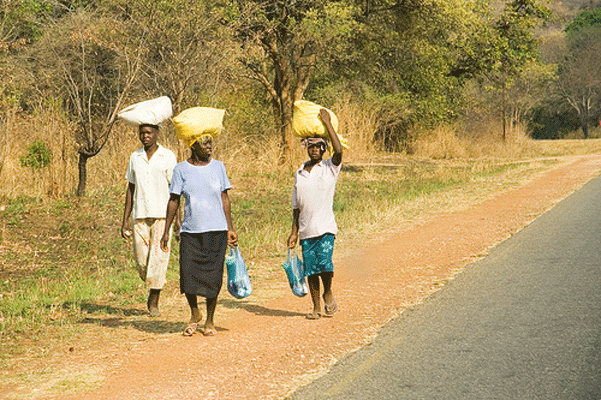
Zimbabwe, just like any African country, is riddled with traditional practices, rituals and attitudes which perpetuate the discrimination and infringement of women’s fundamental civil liberties.
gender lens with Moses Mugugunyeki

In most societies, women are not able to inherit estates and property while a dominant patriarchal value system is the order of the day. Gender division of labour is rife, especially in rural communities where women are placed in the “kitchen” while men do all the “macho” jobs.
Although gender sensitisation workshops with traditional authority structures have been done in the country with the aim of transforming rural communities to be more sensitive to women’s economic and social rights and gender equality and equity issues, women continue to suffer at the hands of some traditional and cultural practices.
In its endeavour to create an enabling environment for the attainment of equity and equality between women and men, Zimbabwe has ratified various international conventions and declarations on gender equality, including the Convention on the Elimination of All Forms of Discrimination against Women (1979), Beijing Platform for Action (1995) and the Sadc Gender and Development Declaration (1997).
During the era of the Lancaster House Conference constitution, Zimbabwe put in place various national legislative instruments aimed at guaranteeing women’s legal and constitutional rights and these included the Labour Relations Act of 1984 and now the Labour Act of 2000, the Legal Age of Majority Act of 1985, the Taxation Act of 1990, the Deeds Registry Amendment Act of 1991, the White Paper on Marriage Inheritance of 1994, the Administration of Estates Act of 1997, the Sexual Offences Act of 2002 and the Domestic Violence Act of 2007.
Some of these legislative instruments are also contained in the new Constitution which seeks to foster economic and social rights of women.
Despite such efforts to bring about gender awareness at various levels of society, customary law has been allowed to prevail over these legislative instruments, leaving women vulnerable to harmful traditional and cultural practices.
- Chamisa under fire over US$120K donation
- Mavhunga puts DeMbare into Chibuku quarterfinals
- Pension funds bet on Cabora Bassa oilfields
- Councils defy govt fire tender directive
Keep Reading
“A number of women are not aware of the legal system. They lack information, education and access to the legal system,” said gender activist Nyari Mashayamombe.
She said in a bid to transform communities to be more sensitive to women’s economic and social rights, women groups were going to the grassroots where they were engaging traditional leaders.
“We are trying to create an enabling terrain for rural communities and rural patriarchal structures to be more receptive to gender equality and equity issues,” she said.
However, The Standard Style established that such outreach programmes have hit a brickwall because certain traditions and practices are considered detrimental to the physical or mental integrity of girls and women.
Marital rape, domestic violence, conflicts between civil and customary marriages, having no option for divorce, economic disempowerment, virginity testing, widow inheritance, prohibition of family planning, lobola, elevation of boy children above girl children, initiation rights, widow dispossession or property grabbing are some practices considered damaging to women and girls’ fundamental civil liberties.
Such practices which have been allowed to be part of society are indeed contravening some sections of the Sadc Protocol on Gender and Development which stipulates that; “States shall take measures, including legislation where appropriate, to discourage traditional norms, including social, economic, cultural and political practices which legitimise and exacerbate the persistence and tolerance of gender-based violence with a view to eliminate them.”
While Zimbabwe has gone further by coming up with some legally binding system through enacting legislations that protect women from discriminatory laws, the conflict between formal and customary legal systems is unaddressed. This has left women at the mercy of damaging traditional and cultural practices.
There are stories from all over the world demonstrating how men and boys can get involved and speak out against discrimination of women. In Senegal, a group called Tostan, involved men and boys in an approach that was aimed at changing the dangerous custom of female genital cutting. Tostan learned that abandoning this old tradition needed to be a collective and community-led decision with participation of male leaders.
So they organised a discussion for the entire village where men and boys could hear their mothers and sisters describe the pain and health problems associated with it. Eventually, the village voted to end the practice. The male leaders then travelled to other villages to explain how harmful female genital cutting is and those villages also voted to end the practice. Within two years, Senegal’s government passed a law banning it, and today Tostan has helped nearly 5 000 communities across Senegal, Guinea, The Gambia, Burkina Faso and Somalia decide to abandon the tradition.
“It is very important to engage men in preventing violence against women. A lot of women succumb to men’s demands because of certain traditional practices,” said Knox Nyamadzawo, a traditional leader based in Gokwe.
Nyamadzawo said eliminating gender violence against women was a long-term struggle and a commitment that all people should make.
For Feedback, email: [email protected]











